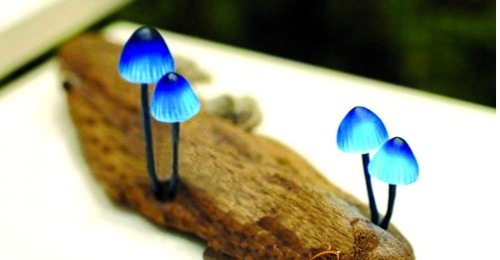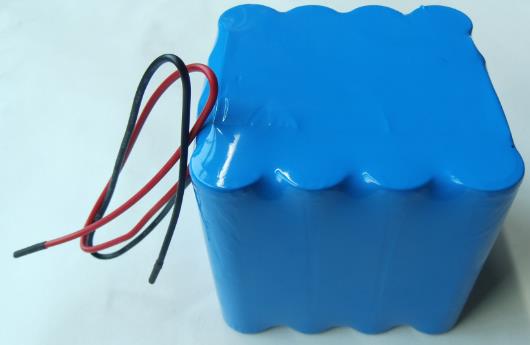 LED will soon replace incandescent lamps, occupying the lighting market, but the key technical constraints may hinder the development of China's LED industry.
LED will soon replace incandescent lamps, occupying the lighting market, but the key technical constraints may hinder the development of China's LED industry. LED will be popular
The full Chinese name of the LED is a light emitting diode. Like all diodes, the semiconductor inside the LED is divided into two regions, P and N, forming a PN junction. There are excess negatively charged electrons in the P zone, and there are excess positively charged holes in the N zone. The principle of LED light emission is not complicated. When the forward voltage applied to the LED causes electrons and holes to meet, it will release energy and convert it into photons.
Compared with incandescent lighting, LED has many advantages: First, it is a solid device, there is no filament and no glass bubbles, no fear of vibration, not easy to break. The service life can reach 50,000 hours. Secondly, the energy consumption of LED lamps is only 60% of that of incandescent lamps. The lamps also do not contain harmful substances such as mercury and lead, which is conducive to recycling. Third, the LED is driven by a direct current, unlike the AC-driven incandescent lamp, which will have a high frequency of flickering, which will help protect the eyes. In addition, the LED needs less voltage and current and is suitable for use in power shortages such as mines and fields.
China has established an inter-departmental national semiconductor lighting engineering coordination and leadership group, and put forward a clear goal: that by 2015, China's LED industry scale should reach 500 billion yuan, and the white LED luminous efficiency should reach 150-200 lumens/watt. Saving 100 billion kWh, saving 350 billion tons of standard coal, reducing emissions of carbon dioxide, sulfur dioxide and dust by 100 million tons, and creating 2 million jobs. Among them, the Pearl River Delta region has a 42% share of the LED market in China, and the 12th Five-Year Plan of Guangdong Province also supports key areas including LED.
Technical disadvantages or restricting China's LED development
According to Liu Songhao, a member of the Chinese Academy of Sciences and a professor at the Information and Optoelectronics Science and Technology Institute of South China Normal University, there is still a mixed standard in the LED field. At present, Guangdong Province has launched a standard optical component plan, using the military industry standard to introduce the LED industry, and through the province's state-qualified testing stations to regularly test products. After the standards are unified, the development of the industry will gradually become more standardized.
There is a problem in the LED lighting products currently on the market: After a period of time, the brightness begins to fade. This is an obstacle to the large-scale application of LED. Liu Songxian believes that MOCVD technology is a potential weakness in the development of the LED industry. MOCVD full name "meteorological chemical deposition of metal organic matter" is the key technology for the preparation of PN junctions on LEDs. Due to the difficulty of manufacturing related equipment, domestic LED companies mainly rely on imports. In recent years, domestic MOCVD equipment has begun to be put on the market, but there is still a certain distance from mass production.
Low temperature lithium battery refers to the working temperature under - 20 ℃,to meet different environment and temperature. YFJ company has designed a lot of this kind of Low Temperature Battery with our own advantages.
1.Dual IC chips, that can anti-shortcircuit, anti-overcharger, anti-overcurrent, anti-overload
2.Widely using temperature range, lower temperature Lithium Battery can be operated in -50°C~+60°C
3.Long
cycle life, more than 500 charge/discharge cycles (0.2C)( 80% capacity remained
). more than 800 times(0.1C charge/discharge
4.The Battery Pack has a high cycle life, which conforms
to the values of low carbon, energy saving and environmental protection
Low Temperature Lithium Battery
Items specification
Charge voltage: 16.8V
Nominal voltage: 14.8V (4S4P)
Initial impedance: 200mΩ
Nominal capacity: 10Ah
Minimum capacity: 9.8Ah
Low-temperature capacity : ≥7.0Ah When the battery is standard charged, it shall be put into chamber at ( -40±2 )℃ for 8-16hrs,then discharged at 0.2C(2A) constant current to10.0V.
Charge current : Standard Charging::0.2C5A (2A)
Rapid charge:1.0C5A C(10A) Max
Charging time : Standard Charging:6.5hours(Ref.)
Rapid charge: 2.5hours(Ref.)
Max.discharge current : 10A(1C5A)
Discharge cut-off voltage : 10.0V
Shelf life : 2 years
Cycle life (0.2C5A/0.2C5A) : 500 times,≧80%DOD; 500 times, ≧80%DOD
Operating temperature : Charging: 0℃~45℃ Discharging:-40℃~+60℃

Low Temperature Lithium Battery
Low Temperature Lithium Battery,Low Temperature Battery,Low Temperature Lithium Ion Battery,Low Temperature Rechargeable Battery
YFJ TECHNOLOGY (HK) CO.,LIMITED , http://www.yfjpower.com